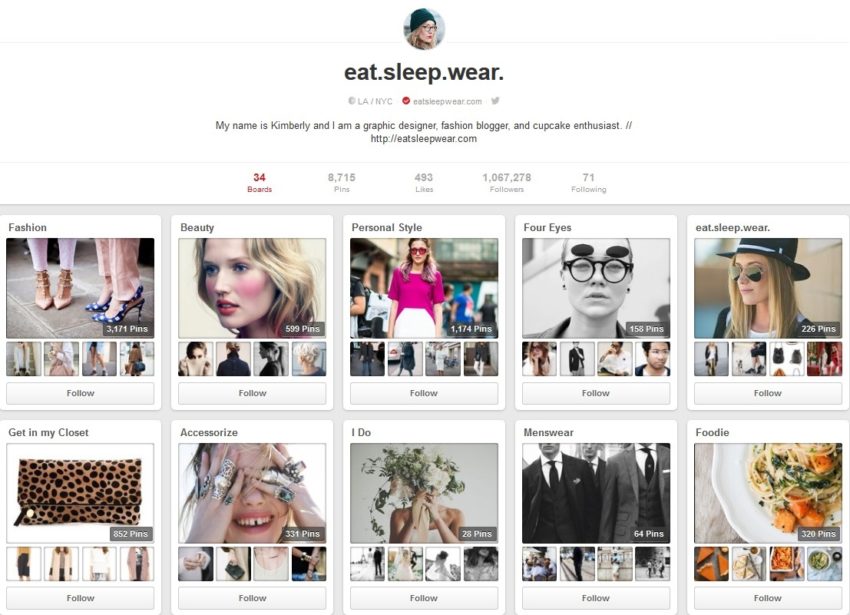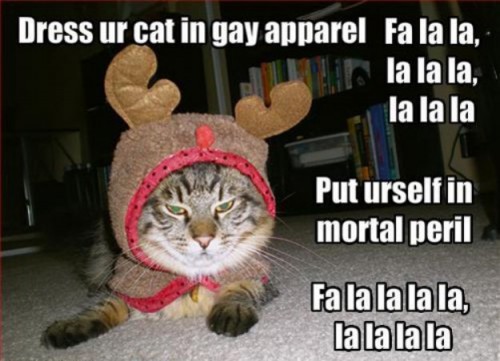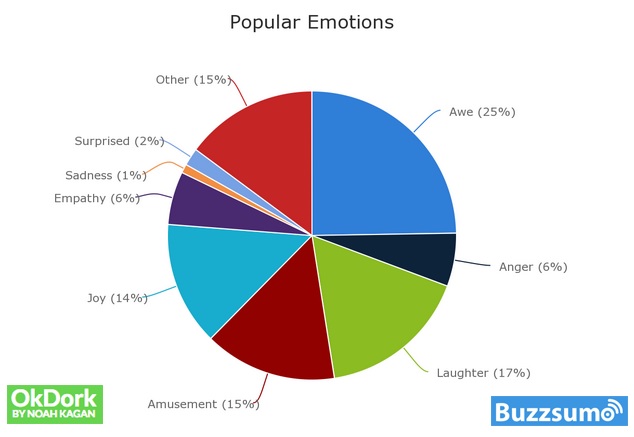Last updated on January 23rd, 2019 at 10:36 am

When blogging on the Internet first began, the general public enjoyed making fun of the new medium–absolutely convinced it would run its course, much like MySpace, and everyone would go back to the Internet-of-old and get on with their “real” life offline.
Except. That. Didn’t. Happen.
Within a few short years, bloggers were launching mega-careers off of their personal websites and media began to scramble to catch up and allow commenting. Suddenly engagement mattered and publishing was about to be permanently disrupted.
I started 8 Women Dream on the Internet as a blog for a specific reason.
Yes, when this crazy idea of sharing your dream on the Internet first took flight, we were simply a local group of Northern California U.S. women who’d meet locally at someone’s home. It wasn’t this big Internet creation back then, but I understood that the best way to make a dream come true was to showcase and share it on the Internet.
Most of the original dreamers thought I was nuts.
But I had done my own analysis of success on the Internet before we had our first meeting. I understood that it’s only in the sharing of a concept in a big, scary way that it will gain momentum and succeed. There is some real research with reasons to back this up.
Firstly, you need your own tribe. Dreaming big is not a solitary hobby-sport and neither is success.
You need help and a great deal of advice in order to triumph. The best way to get the help you need and receive that much-needed feedback that contributes to your success is to showcase what you want on the Internet.
The telling of your story doesn’t have to be a WordPress blog either. You can become the Queen of Pinterest, or the Goddess of Instagram, or the Maven of Tumblr, or even the First Lady of YouTube–plenty of Internet stars have launched their dreams on these social media platforms.
Being in the public eye
The important point is that you have a public place where you can discuss your dream and be held accountable.
Secondly, posting something on the Internet regularly leads to accountability. Why do you think Weight Watchers has a weekly check-in procedure? Studies have shown that peer accountability is the ultimate catalyst for success.
Checking in forces you to stop your life for a few hours each week and look at what you’ve done, or haven’t done to achieve a particular goal.
For example, if you are a photographer with a photography blog and you promise your readers that you will post a photo every single day, you have a greater chance of taking photographs during the day which could lead to creating an online portfolio that will get you noticed and launch your career.
Rather than running around your town sticking your photos up in restaurants (unless it’s an uber-famous restaurant where the uber-famous eat) hoping the world will discover your talents and your photography dreams will come true, spend that time showcasing your images from your own place on the Internet. You are more likely to get discovered through a social media share than someone out having wine and cheese after a day of shopping.
Thirdly, and Generations X-Z get this point, having an audience can change your life in a very big way.
As famous Internet entrepreneur and blogger, Jason Calacanis puts it:
“…People need to realize [that] audience equals power. If they can build an audience and own an audience, as they go into this new world where we’ll have less jobs and — you know, the opportunity will be very polarized. Some people are going to get massive salaries, and some people are going to get the really bad jobs. The bigger your audience and the deeper your connection with it, the more opportunity you’re going to have in your life.”
Build it so they will come
Whatever you are trying to do needs an audience.
It’s the way social life has become whether you want to accept this fact or not. You can use a social community to help you become a success, or you can go bury your head in the sand and wish it was still 1985.
Look, my own brother married his perfect life-partner after meeting her on the Internet. I love my sister-in-law … but how it is that they are so perfectly suited for each other? It boggles my mind–and I am forced to recognize in my own offline world the power of the social side of the Internet in making your dreams come true!
However, Internet popularity doesn’t come easy. It’s a bitter fact for many creatives to handle. If I had a quarter for every time a writer, or an artist, asked me why no one is reading or sharing their stuff I’d be a wealthy, wealthy women by now.
The reason is simple, but difficult for most to hear:
Being ignored means that what you are creating for the public has a problem, and quite often, it’s a quality problem.
Placing something remarkable on the Internet (remarkable meaning that it’s something worth remarking about and sharing) takes real effort and an adherence to a higher standard than everyone else around you.
Just because an LOL Cat image trending online seems ridiculous while making you laugh out loud, doesn’t mean the creator of the image didn’t spend 8-10 hours perfecting it before posting it for the world to see.
You have no way of knowing if this creator’s time prior to his/her viral post consisted of taking 500 photos of cats over a 5 year period until the five-hundred and 1st photo became the viral one. Popularity and quality content is a lot of trial and error and getting to know your audience.
What I see from a lot of artists is this tendency to quit perfecting what they are showcasing (if they even perfect it at all) too soon in the process and then sharing half-done or poorly-executed content for the world to see because they were in a hurry, bored, distracted, or just wanted to be done with it.
And then they are upset when no one notices them.
Blogging as an example
I’ve seen new bloggers refuse to research the title for their story (stories, books, movies, etc. are all about the title) or ignore adding a remarkable image that adds to their compelling story–they just throw up some image–any old image and all too often a crappy phone photo of themselves doing something no one will ever care about, then sit back and are proud of their 30 minute accomplishment.
Forget that their story layout doesn’t follow basic Internet usability standards with distractions like black, printed or moving image backgrounds, tiny colored creative fonts, and long ridiculous paragraphs without thinking what scrolling will be like for the mobile reader.
Good God people at least leave some finger space!
(God Catherine, you are such a pain-in-the-ass). This too has been said by many a blogger to me.
Bit here’s the thing: these aren’t my rules. I didn’t invent how the Internet works. It’s just the way it’s set-up. You can choose to drive your car backwards down a freeway, but it doesn’t mean you should. There are set rules for driving for a reason. It’s the little details that tell your audience if you care about them and your work.
And you never know who will be stopping by to take a look at your work. If done well, it could mean your lucky break. If not–your one big chance may have just clicked away to some place better.
The world is a distracted place and if you can’t be bothered to go the extra mile in perfecting what you share with others, then you will always be asking,
“Why isn’t anyone sharing my stuff?”
And I will always answer: “Because you aren’t ‘Wowing’ them.”
Analyst and author, Malcolm Gladwell caught a great deal of public slack for his 10,000-hours-to-become-an-expert research, but those who are successful understand that Malcolm is right. It is only through trial and error combined with constant practice over time and a dedicated tenacity to do great work that you create something that people sit up and notice.
When people aren’t noticing you, it doesn’t mean that you lack talent or that you are bad at what you are trying to do. It simply means that your talent may not be “there” yet or you are taking too many shortcuts and it’s reflected in the quality of your work.
When painter, Claude Monet painted his famous Impression, Sunrise painting of the Le Havre landscape, art critic, Louis Leroy called Monet’s work “just an impression.” Meaning he wan’t doing a real painting like they were used to seeing. This would ultimately spark a new style of painting that we know today as “impressionism.”
One would argue that Monet was already talented years before the revue of this particular painting occurred, but it wasn’t until a change in his style attracted attention of a critic (someone of influence) that his career took off. His art suddenly solicited a strong reaction and people took notice.
Monet had been offering up his best work to the public while perfecting his talent and studying with the masters of his day. He did this until he was confident enough to take a risk with on a new painting style.
As it turned out, it was a style worthy of comment. It was remarkable.
And a person of influence took notice.
If what you are putting out in the world for your big dream is not worthy of a critic or isn’t audacious enough for a visitor to engage with, then it’s going to be ignored.
Internet popularity is based on engagement and just like Monet’s painting career took off because his painting was worth discussing by a critic with a large following, your dream can come true when someone important to your dream notices you and your work online.
I’ve personally witnessed it happening here on 8 Women Dream. Dreamers have leveraged their exposure on this site into high-paying dream jobs, famous media company interviews, and help from influencers.
These wins happened because of exposure that wouldn’t have happened had these dreamers not risked embarrassment and failure by putting it all out there for their audience. They gave their dream stories their all and the Internet rewarded them in kind.
Content analyzing company, BuzzSumo analyzed the social share counts of over 100 million articles and the following pie chart reveals the types of emotions the most popular articles on the Internet invoke:
Is what you are putting out there evoking any kind of emotion from your audience? If not, then you need to start there. Emotion is motivation and people aren’t motivated by something until they feel an emotional attachment.
Emotion is the key to online popularity. But there’s more …
7 Tips for creating popular content:
1. Who are you giving value to? Answer this: “Does what I am providing allow [name your perfect audience] to do/be more __________?”
2. Then ask yourself if what you are doing cures something for your audience. (e.g. Laughter helps with sadness, inspiration helps with hope, information helps with success, sharing something deeply personal helps someone know they are not alone, etc.)
3. Tell a good story by delivering an experience. When you step back and take a hard look at what you are showcasing does it offer an unique experience that can’t be found somewhere else?
4. Does what you are doing hold someone’s attention for longer than 2 minutes?
5. Is what you are doing remarkable? Will someone want to talk about it or share it with a friend?
6. Are you being fearless? You can’t hesitate or hold back on what you are creating out of fear that you will offend a person in your audience, or someone in your family /social circle.
7. Does what you are doing tell a cohesive story? Or are you jumping around all over the place based on your emotions that day? Gaining an audience requires that you set an expectation of excellence that will always be met.
The most important take-away point here is not to put anything out into the world that you are not proud of. Don’t slap something together and expect people to be moved by what you are doing. Think about what annoys you on Facebook or wherever you like to hang out socially. Don’t be that person.
Give your very best every single time and strive daily to become more. Never be satisfied with your work–keep reaching and stretching your talents.
Think awe-inspiring and work towards that goal every single day until your work becomes remarkable.
Then be ready to set the world on fire.
Catherine Hughes
Be a Success Online!
[fbcomments]

Catherine Hughes is an accomplished magazine columnist, content creator, and published writer with a background as an award-winning mom blogger. She partners with companies to create captivating web content and social media stories and writes compelling human interest pieces for both small and large print publications. Her writing, which celebrates the resilience and achievements of Northern California’s residents, is featured in several magazines. Beyond her professional life, Catherine is passionate about motherhood, her son, close friendships, rugby, and her love for animals.
Note: Articles by Catherine may contain affiliate links and may be compensated if you make a purchase after clicking on an affiliate link.







